Hands-on with an S&W M1917 revolver – the weapon that armed the US in WWI
- By Travis Pike
Share This Article

War never changes in some regards, but in others it does, and we are never really prepared for it. In 2003, thin-skinned, unarmored Humvees rode into Iraq. In Vietnam, we entered the war still carrying M1897 shotguns, BARs, and M1 Carbines, and in World War I, we didn’t have enough rifles and pistols. In WWI, the official handgun of the United States was the M1911, but the weapon that armed two-thirds of American handgun carriers in the Great War was the M1917 revolver — in its two versions.
Colt made an M1917 and S&W made an M1817 revolver. Both were used as a replacement for the M1911 in the field. The M1911 was a semi-automatic, magazine-fed pistol that was adopted a few years prior to the American entry into World War I.
Semi-auto pistols were still new in that era, and setting up production, training employees, and producing M1911 took too much time. So, when the doughboys hit the European battlefields, there simply weren’t enough M1911s ready to roll. Thus, the U.S. made due and ordered Colt and S&W to make revolvers to fill the gap. Colt and S&W both had an extensive lineup of revolvers already in production, and it would be faster to build M1917s than set up and build M1911s.
These guns are a bit old and tough to find, but we were able to get hands-on with an S&W Model M1917 revolver recently, and it was a fascinating way to experience history.
Related: Did you know that the last trench gun survived until the Iraq War?
The M1917: A Tale of two guns
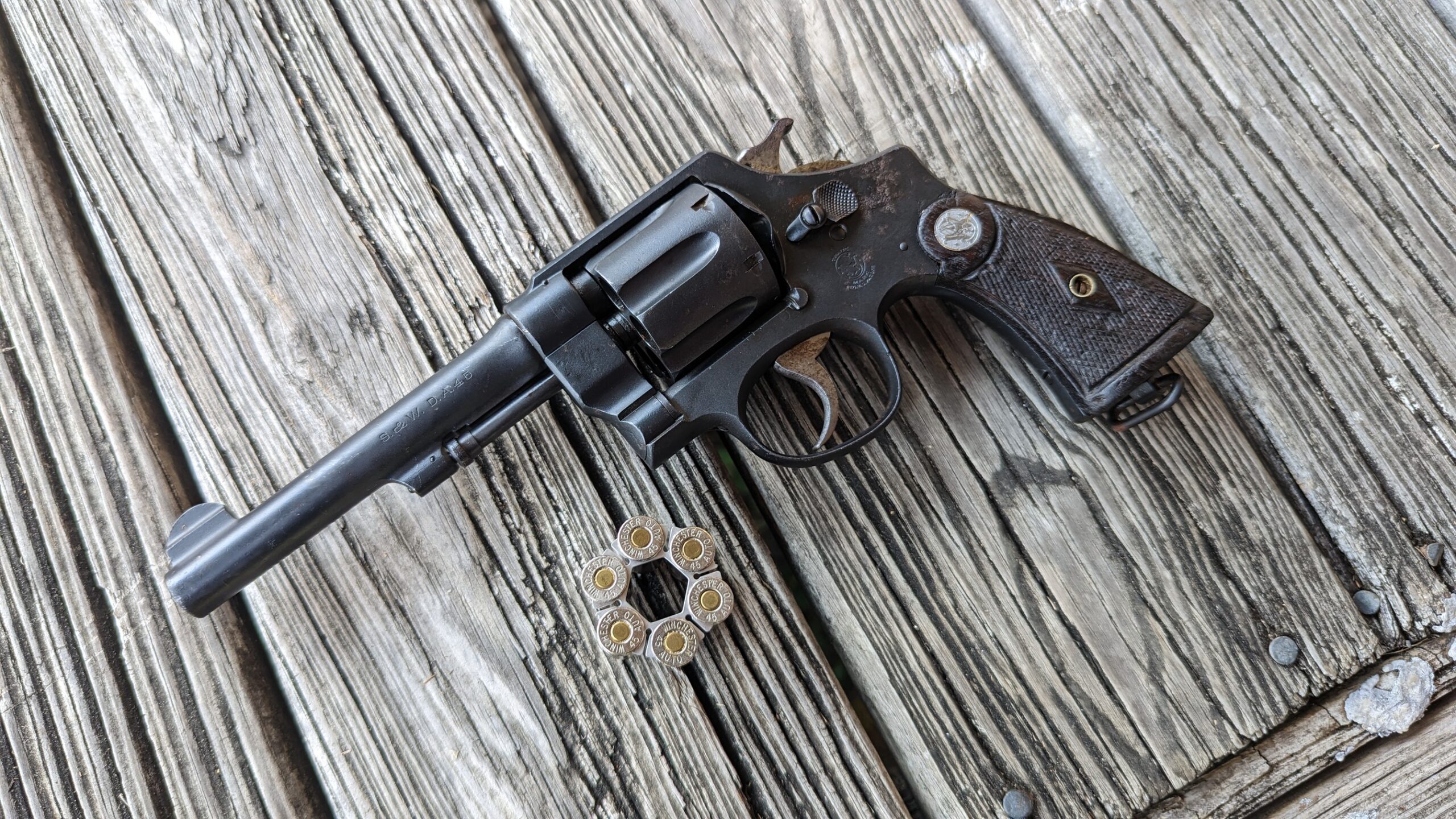
The Army still wanted the guns to be in .45 ACP, which created quite the challenge for S&W and Colt.
Automatic cartridges lack the very distinctive rim of revolver cartridges and without the rim, there is nothing to engage the ejector star. To correct this, Daniel Wesson of Smith and Wesson created something known as the half-moon clip. This connected to the three rounds of .45 ACP and provided the “rim” necessary to engage the ejector. At the request of the Army, S&W allowed Colt to use the half-moon design for free. S&W also later made full-moon clips that held all six cartridges together.
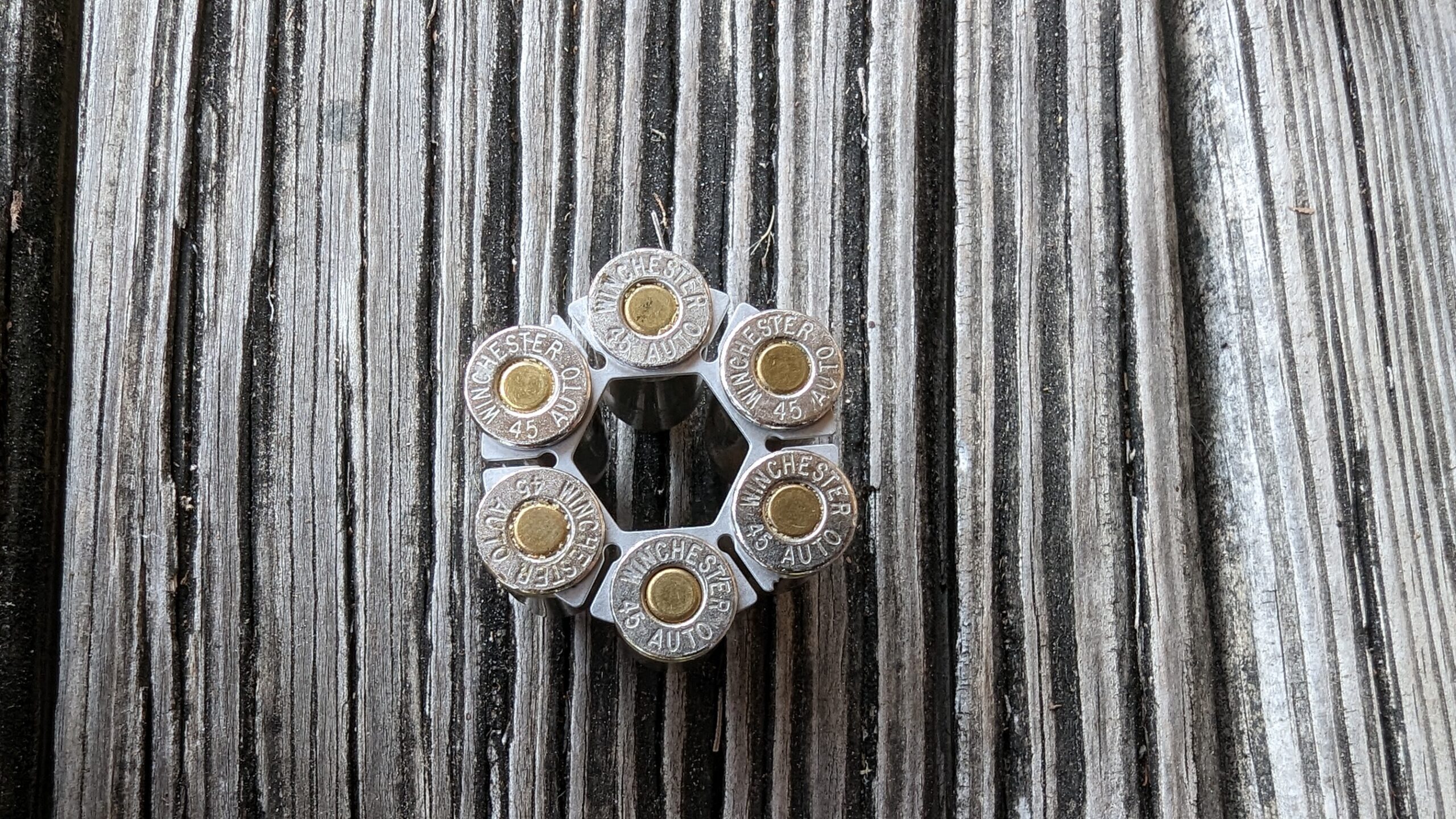
S&W adapted its Triple Lock .44 Hand Ejector 2nd Model to .45 ACP. The old Triple Lock was considered one of the best revolvers ever created and it made for a natural basis for the .45 ACP.
Colt used the M1909 New Service revolver, which was previously chambered in .45 Long Colt, another natural adaption.
Each of these revolvers was a modern double-action design with an exposed hammer for easy cocking to single-action.
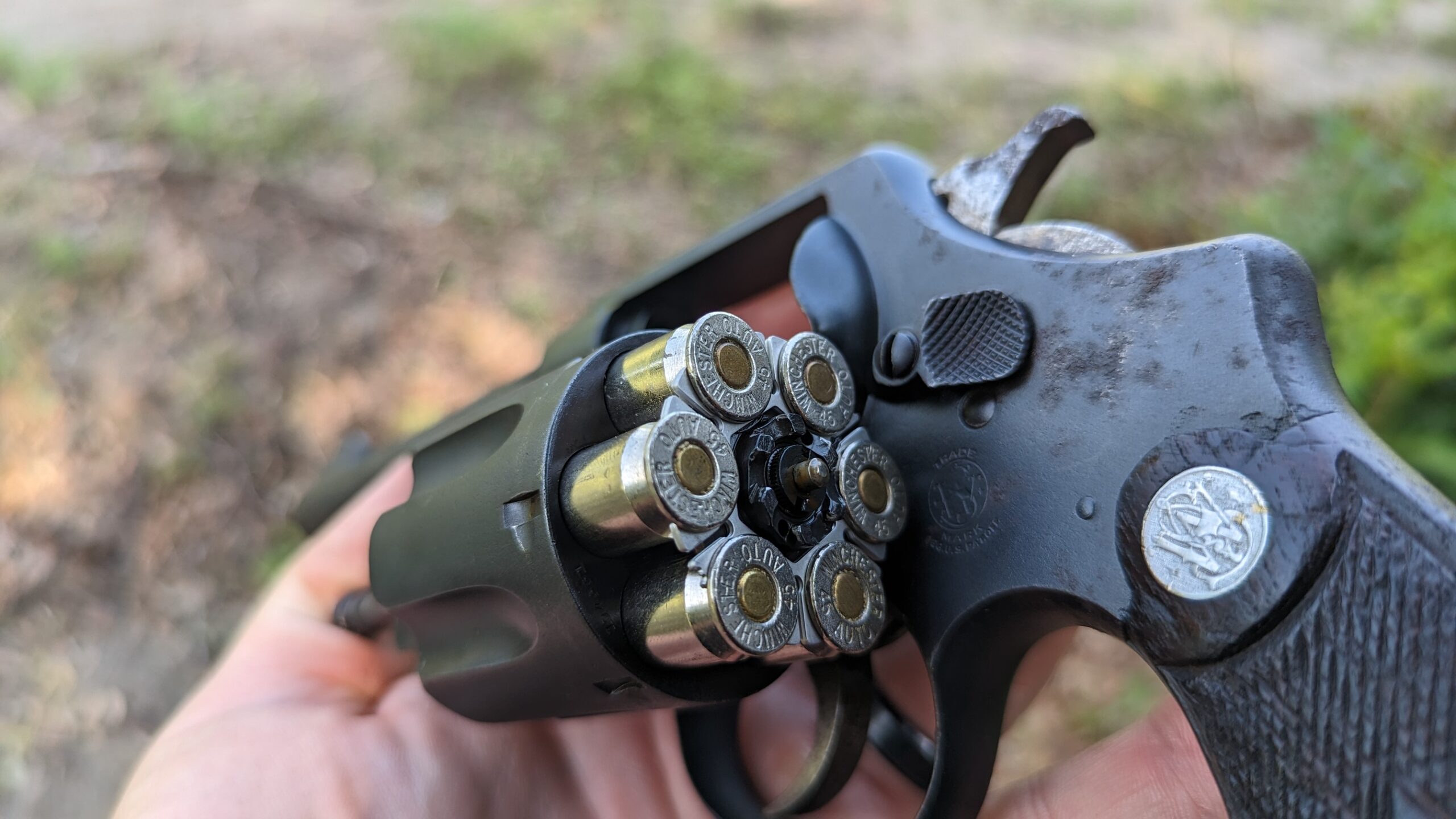
The S&W variant did have one small advantage over the Colt variant, however. S&W machined a shoulder inside their cylinders to allow the .45 ACP to headspace on the case mount. This allowed the gun to be fired without moon clips, but, in that case, the user would need to eject each round individually.
Related: Bermuda’s awkward Mini 14 GB – Service rifles from around the world
At the range
The S&W M1917 I was able to obtain is a piece of history, so I didn’t abuse it, but I did get a chance to fire the old beauty. The design is typical of the era: The ejector rod isn’t shrouded and the grip has a lanyard loop. The front sight is a big blade that’s easy to see. The rear sight is just a trench on the top strap of the revolver.
I had a few full moon clips available to me, so shooting and ejecting the rounds wasn’t an issue.
The M1917 is a meaty revolver weighing over two pounds, and you feel it — that American steel pulls no punches. For comparison, the latest sidearm adopted by the U.S. military is the M17 which weighs 1.8 pounds and holds more than triple the ammo of the M1917.
Live fire
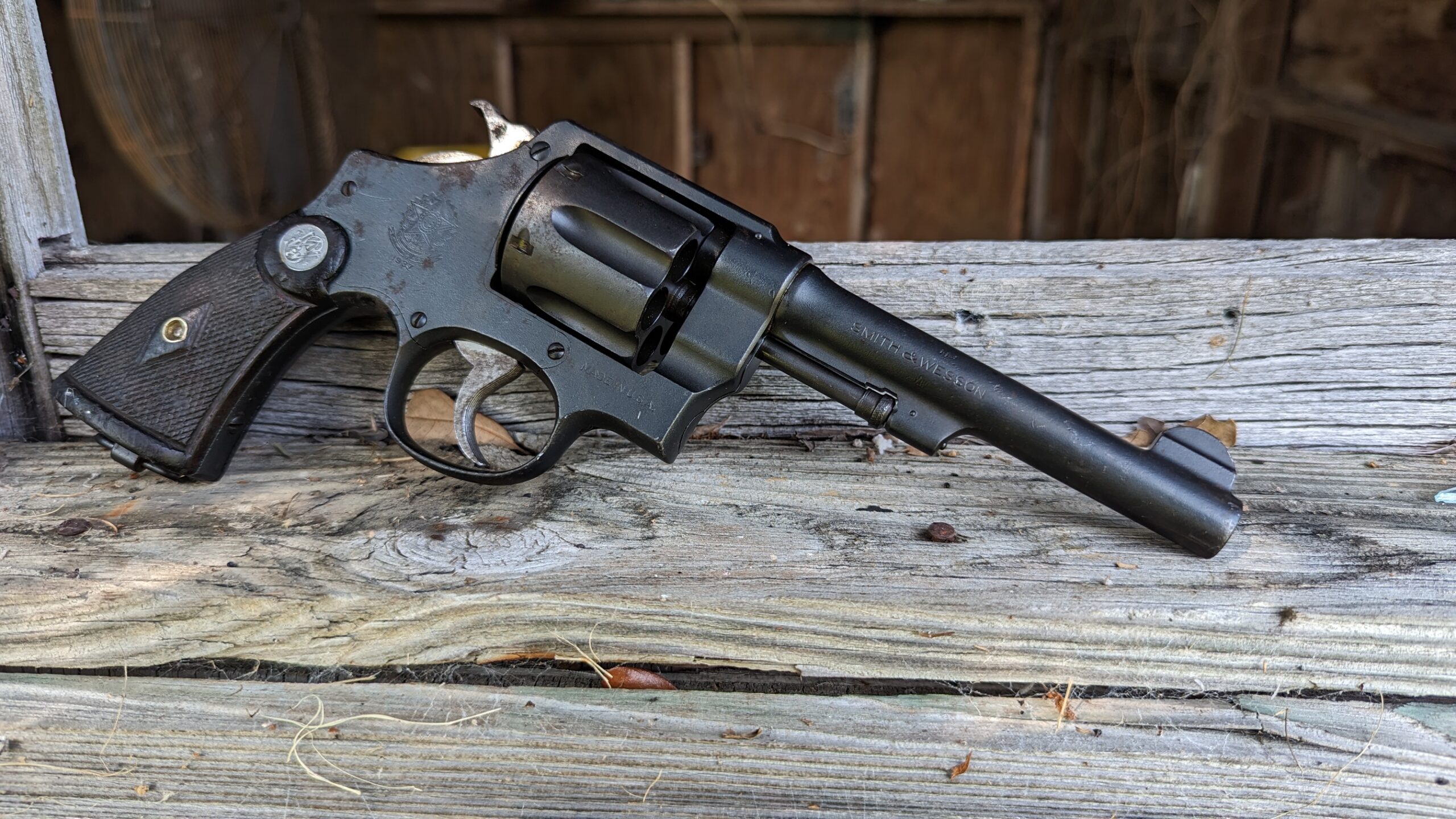
Recoil was surprisingly stiff, not abusive nor painful, but I’m used to shooting semi-auto .45 ACP pistols, and a semi-auto typically has lighter recoil due to the reciprocating slide and operating systems absorbing and using recoil to function. The smallish grips certainly don’t help, but the grip design does create more of a rolling impulse than a snappy one.
Accuracy was okay, good enough for taking on the Kaiser, for sure. The old-school sights aren’t quick to use with precision but make it easy to ring a 10-inch gong at 25 yards in double action. The gun’s old trigger is honed and quite smooth: age and time certainly help take any grit out.
Related: The AR-1 – The drone that can fire an assault rifle
I fired 10 cylinders worth of ammo, so 60 rounds total, and every round fired without issue. I fired five cylinders with moon clips and one without out. No problems either way, but I needed a pen to punch out the empties when I didn’t use a moon clip.
The moon clips act a bit like speedloaders. They make reloads fast and easy, much like dropping a magazine into an automatic. Drop in the clipped cartridges, close the cylinder, and fire. I’d certainly prefer that to a traditional design of the era. Removing the empties from the moon clip is an experience and would certainly not be done under fire.
Living history
This M1917 revolver is a piece of living history. It allows someone to have a connection with the soldiers of both World War I and World War II, as the revolvers were also used in that conflict. The M1917 series from Colt and S&W also served with the French and British militaries.
These guns are a fascinating piece of small-arms history which are often, unfortunately, overshadowed by the famed M1911. However, they certainly earned their stripes and even after decades of use, remain reliable and go bang when necessary.
Feature Image: Firing an M1917 revolver. (Courtesy of author)
Read more from Sandboxx News
- Combat swimmer operations and their importance in a near-peer conflict
- Did America’s next stealth fighter just get revealed on Instagram?
- The long-range fires that will define the Ukrainian counteroffensive
- Why America’s new NGAD fighter could be a bargain, even at $300 million each
- Why today’s military AI isn’t capable of ‘going rogue’
Related Posts
Sandboxx News Merch
-

‘Sandboxx News’ Dad Hat
$27.00 Select options This product has multiple variants. The options may be chosen on the product page -

‘AirPower’ Golf Rope Hat
$31.00 Select options This product has multiple variants. The options may be chosen on the product page -

‘Kinetic Diplomacy’ Bumper Sticker (White)
$8.00 Add to cart

Travis Pike
Travis Pike is a former Marine Machine gunner who served with 2nd Bn 2nd Marines for 5 years. He deployed in 2009 to Afghanistan and again in 2011 with the 22nd MEU(SOC) during a record-setting 11 months at sea. He’s trained with the Romanian Army, the Spanish Marines, the Emirate Marines, and the Afghan National Army. He serves as an NRA certified pistol instructor and teaches concealed carry classes.
Related to: Gear & Tech, Military History
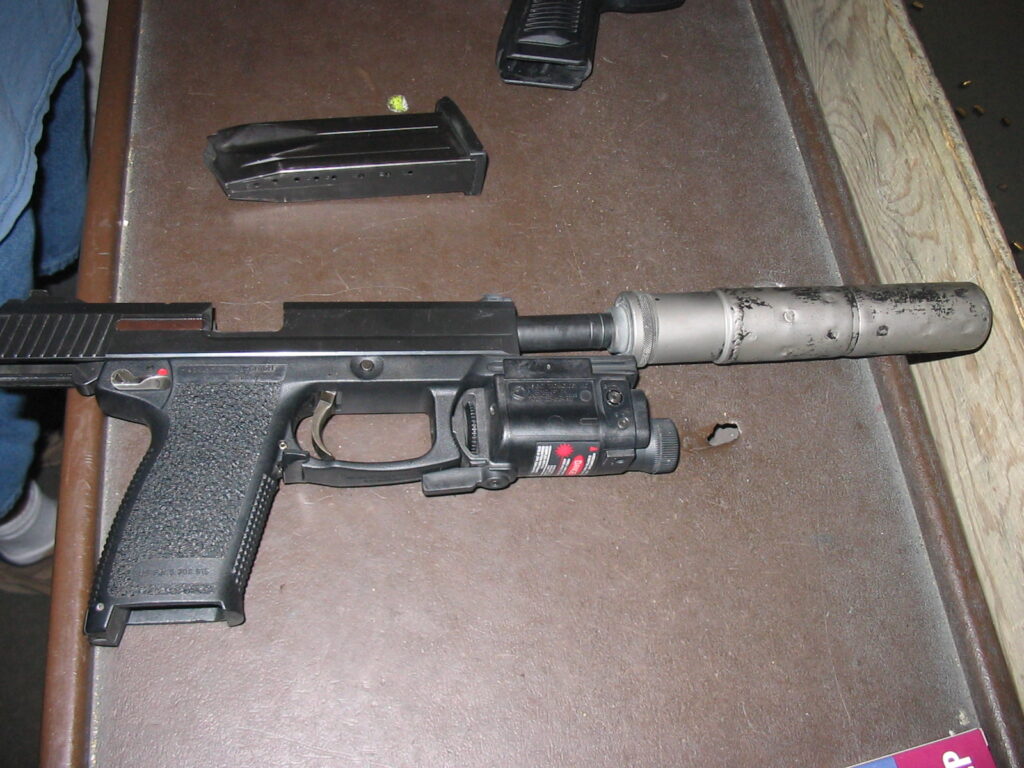
The HK MK23 built for SOCOM was the first and last offensive handgun
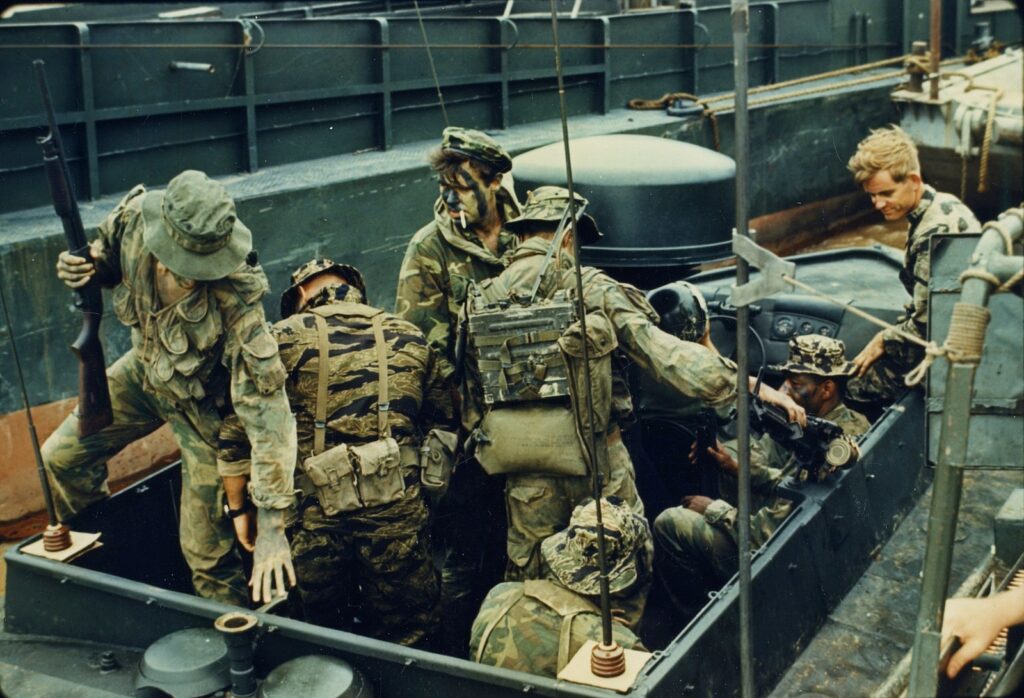
The slick custom shotgun carried by a Navy SEAL point man in Vietnam
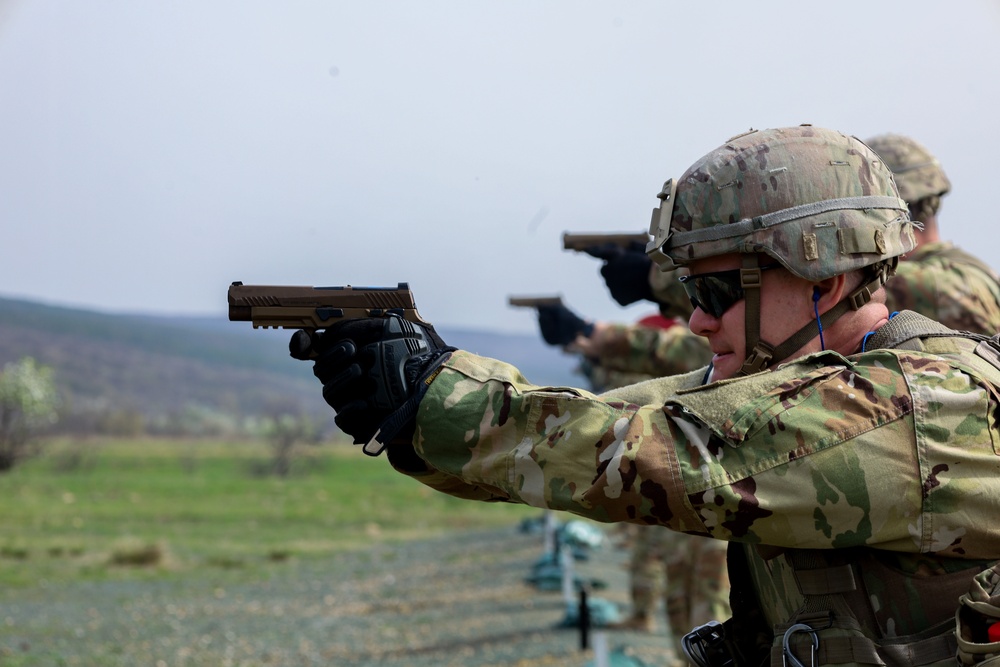
Are the Army’s old Beretta M9 and new SIG M17 pistols as similar as people think?

The Switchblade, loitering munitions, and the new terrifying face of warfare
Sandboxx News
-

‘Sandboxx News’ Trucker Cap
$27.00 Select options This product has multiple variants. The options may be chosen on the product page -

‘AirPower’ Classic Hoodie
$46.00 – $48.00 Select options This product has multiple variants. The options may be chosen on the product page -

‘AirPower’ Golf Rope Hat
$31.00 Select options This product has multiple variants. The options may be chosen on the product page -

‘Sandboxx News’ Dad Hat
$27.00 Select options This product has multiple variants. The options may be chosen on the product page
